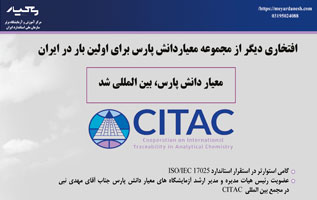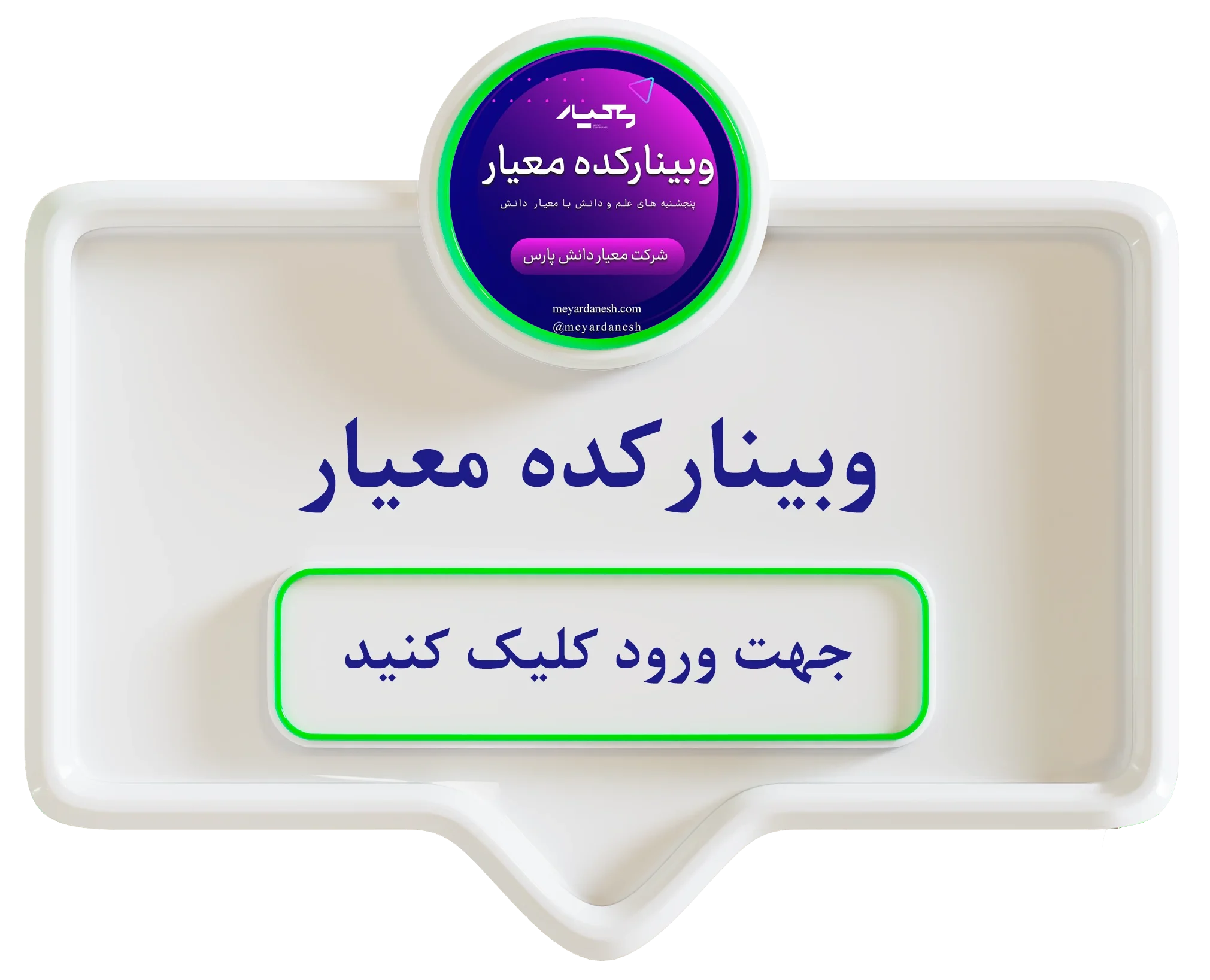عضویت در مجمع CITAC
- افتخاری دیگر از مجموعه معیاردانش پارس برای اولین بار در ایران
- گامی استوارتر در استقرار استاندارد ISO/IEC 17025
- عضویت رئیس هیات مدیره و مدیر ارشد آزمایشگاه های معیار دانش پارس جناب آقای مهدی نبی در مجمع بین المللی CITAC
درباره ی مجمع بین المللی CITAC:
سی تک(CITAC) مجمع مشارکتی بین المللی قابلیت ردیابی در شیمی تجزیه می باشد.که در سال ۱۹۹۳ با هدف بهبود قابلیت ردیابی نتایج اندازه گیری های شیمیایی در جهان و اطمینان از اینکه اندازه گیری های تجزیه ای انجام شده در کشورهای مختلف و یا در زمان های متفاوت، قابل مقایسه هستند ، ایجاد شده است.
یکی از بهترین روش های ایجاد قابلیت ردیابی استفاده از مواد مرجع گواهی شده (CRM) می باشد.
Introducing CITAC
CITAC – Cooperation on International Traceability in Analytical Chemistry – arose out of an international workshop held in association with the Pittsburgh Conference in Atlanta in March 1993. The aim of this workshop was to discuss how analytical activities could be developed to meet the needs of the 21st century, and it identified a wide variety of issues to be addressed to ensure that analytical measurements made in different countries or at different times are comparable. These range from the development of traceable reference materials and methods to the harmonisation of analytical quality practices.
The CITAC Initiative aims to foster collaboration between existing organisation to improve the international comparability of chemical measurement. A Working Group takes matters forward and its initial activities have centred on a few specific high priority activities. The first tasks included the compilation of a directory of certified reference materials under development; preparation of quality system guidelines for the production of reference materials; preparation of a directory of international chemical metrology activities; defining criteria for establishing traceability to the mole; and the preparation of an international guide to quality in analytical chemistry.
Many of these activities are of a strategic nature, laying the ground for the improvement of international analytical measurement. This reflects the added geographical complexities associated with a world-wide organisation, such as greater diversity in culture and in technical approach, and frequently long timescales associated with its activities. Nevertheless, if the full benefits of improved analytical measurement are to be realised internationally, a truly global approach is needed, and there is a clear role for CITAC to play in this respect.





بدون دیدگاه